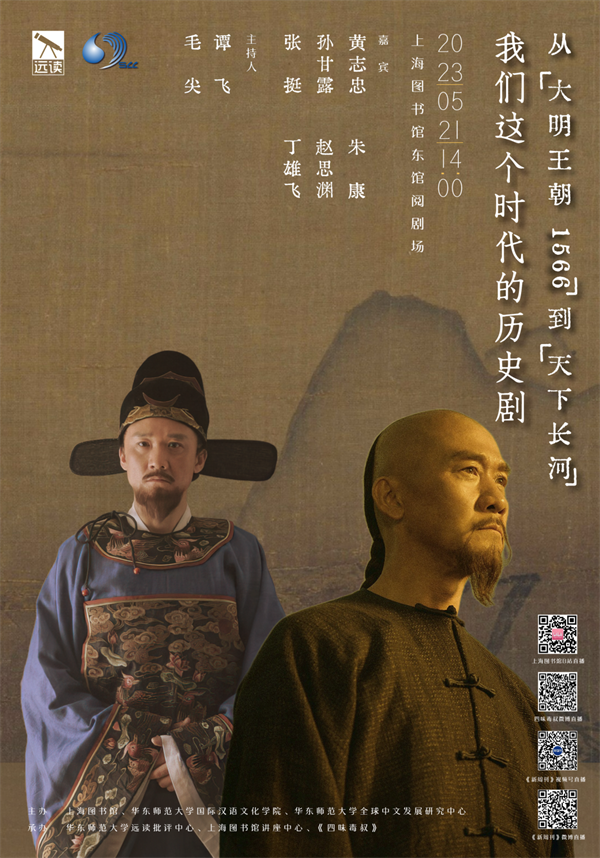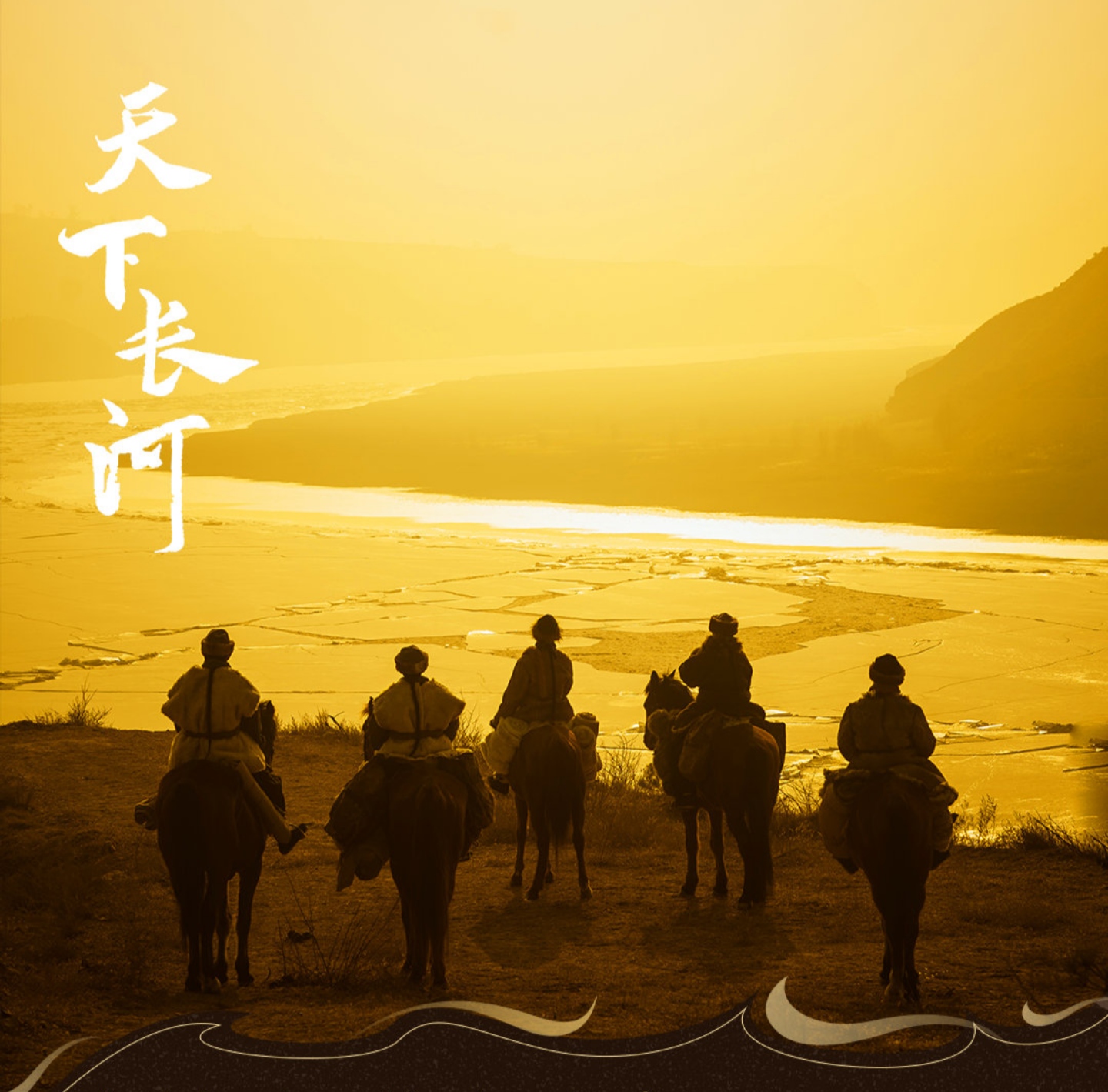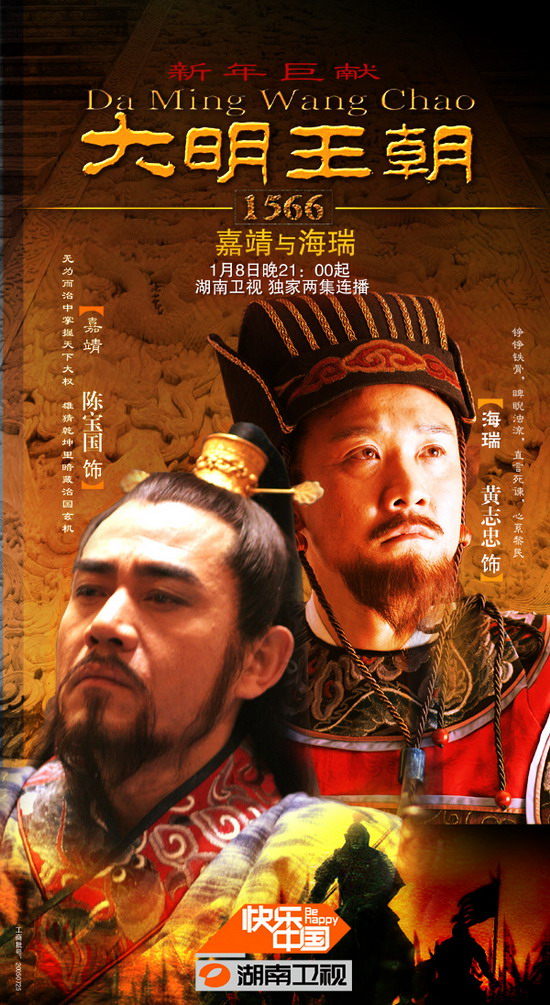
Recently, the Shanghai Library joined hands with the School of International Chinese Culture of East China Normal University to launch a series of lectures on reading theater reviews. On May 21, the second session of the forum, "Historical Dramas of Our Time", was held in the East Building of Shanghai Library. The event invited actor Huang Zhizhong, writer Sun Ganlu, director Zhang Ting, scholars Zhu Kang, Zhao Siyuan, The Paper reporter Ding Xiongfei to participate in the forum, and producer and film critic Tan Fei served as the host of the event.

event poster
Historical dramas that depict the human and political landscapes of ancient China have always occupied a special place in the sea of Chinese film and television drama genres. Historical dramas not only reproduce the past of China, but also link the current reality. In the performance and imagination of history, it depicts The spirit of the present age.
As an actor, Huang Zhizhong has successfully portrayed Hai Rui in "The Great Ming Dynasty 1566", Yang Liren in "The Right Way in the World Is the Vicissitudes of Life", Yuan Longping in "Meritorious Service", Jin Fu in "The Long River of the World" and many other impressive histories It can be said that his acting career has witnessed the development and growth of domestic historical dramas.
"If an actor wants to get close to historical figures, he must first look back and find a lot of historical materials, not only to get close to the characters in appearance, but also to have a constant dialogue with the characters in his heart." Huang Zhizhong said, "In terms of specific performances, we are In the constant trial and error, and in the months-long shooting process, I also constantly adjusted myself, kept looking at the historical facts, and found the fulcrum that is helpful for character establishment."
Historical dramas offer 'sample life'
"Why do audiences and the industry always pay attention to historical dramas?" Practitioners, experts and scholars in the film and television industry put forward their own opinions. Ding Xiongfei, a media person, said that our TV series have always been closely related to literature, and have a tradition of adapting famous works. Chinese historical dramas are also good at using some lyrical audio-visual language, showing a very literary way of creation. "In "The Long River of the World", when Chen Huang was about to die, the director designed a shot of him wandering in the sea of stars. This is a very lyrical passage." He believes that this literary expression is completed by the audience: "Like some historical drama commentaries at station b, they will explain the ancient poems and allusions of the characters in the drama to the audience. This is a way of literary criticism to appreciate TV dramas." In his opinion, creators and readers (viewers) Together, they have changed the understanding and definition of literature in this era. "TV dramas are more and more like the literature of our era, and historical dramas have played a very important role in it."

Stills of "The Long River under Heaven"
Regarding the above problems, the scholar Zhu Kang cuts in from a sociological perspective. He believes that contemporary society itself is a dramatic society, "People have their own roles to play in life, so people take their own dramatic roles to enjoy TV dramas. The characters in TV dramas play an entertaining and educational role in people’s lives. Therefore, in such a social form, people have a very close relationship with TV dramas.” Zhu Kang said, “We Dramatic characters often form an interaction and a kind of echo with the dramatic characters in TV dramas, which is why we are so willing to appreciate TV dramas in this era."
Director Zhang Ting has directed historical dramas such as "Daming Fenghua" and "The Long River in the World". In his opinion, the audience's attention to historical dramas is because historical dramas provide life samples. "We have no chance to live like Jin Fu, but they Provides a sample of life. The experience in our life, one is personal experience, and the other is aesthetic experience. In fact, the richness of life is increased by watching other people's life samples.
The "Poetic Truth" of Historical Drama
In the literary and social evaluation of historical dramas, it is inevitable that the issue of "historical authenticity" will be mentioned. In a strictly epistemological sense, no work can fully reproduce history. When history has happened once, no one will say: I can present history exactly the same to today's audience or readers.
In this regard, scholar Zhu Kang proposed "the poetic truth of history": "What historical dramas provide is a poetic truth based on historical truth. Poetic truth means that whether it actually matches history does not matter to some extent. Not so important, because historical dramas contain a very complicated time dimension. The things mentioned in historical dramas all happened in the past, but the reproduced images of historical dramas happen in the present, so historical dramas contain a subtle relationship between the past and the present. time relationship."
He took "The Great Ming Dynasty 1566" as an example, which tells the historical story of the Ming Dynasty with a purely fictional event "changing rice into mulberry", "but for most viewers, they feel that the whole TV series has a sense of Ming Dynasty history. Highly faithful restoration, especially the characters of various historical figures, and the fierce partisanship displayed." He believes that the most important thing about the evaluation of historical dramas is not how consistent it is with history, but the creation of this drama at this moment. The purpose of watching this drama is to express the mentality, thoughts, and observations of this era. This is the task of "poetic truth" that historical dramas must undertake.

"Da Ming Dynasty 1566" poster
"Whether in literary creation or in the professional research of history, we all have some kind of imagination or assumption about history at a certain moment. How should we face it?" Scholar Zhao Siyuan raised this question following the aforementioned discussion . He quoted Edward Hollett Carr's words in "What is History": "History is a continuous and interactive process between the historian and the historical facts. Discontinued conversation."
"We are not porters of history, but in the process of dialogue with history, we can help readers and audiences today understand what history once looked like, or what it might mean." He said, "As long as we remember Remembering the difference between film and television dramas and historical papers, we can solemnly regard film and television dramas as a valuable and even original way of historical insight. We can face the same period of history with different creative identities, and use different Ask questions from different angles in different ways, and everyone asks different questions, which is what matters.”
"Historians have basic working principles. I can't talk nonsense about things that are not written in historical materials. But for literature and film and television drama creation, where historical materials stop, historical questions begin."
As a creator, Director Zhang Ting put it more bluntly: "There are many gaps in historical records, and mistakes are constantly being discovered through new historical research. When faced with some suspicious historical materials, what we creators can do, It’s about drama and characters. If you look for history in drama, it’s like comparing "Journey to the West" with Tang history. You can’t find Monkey King, and you don’t have a magic spell." He pointed out that the most serious problem with historical dramas is whether the drama is good or not. Okay, "After the show is over, it's not a problem. Monkey King can come out of the stone. What else in the world can't be written?"
"Individual Angle" of Historical Drama
During the discussion, the writer Sun Ganlu put forward his observation that not only historical dramas, but historical writing is now more and more enriching the aspects of history from the perspective of personal and artifacts. "In addition to the historical writing we are familiar with from a macro perspective, we are also using more angles and details to present the true face of history. These personal micro-narrations are like an effort to break free from macro-level historical narration."
The first episode of "The Long River in the World" is about the history of the breach of Gaojiayan in the 15th year of Kangxi. Zhao Siyuan mentioned that Qianlong's "Huai'an Mansion Chronicle" once recorded that there was a village called Hongze Village on the edge of Hongze Lake. This village was submerged during the great breach in the 15th year of Kangxi. Until Qianlong, someone saw the underwater house and asked the local people to know this history. "Thousands of families used to live here, but there are no other stories about this village left. No one knows what those villagers went through. Kangxi didn't know, Jin Fu didn't know, we as current historians , contemporary people, we really want to know their stories."
This desire to know the individual history under the macro historical narrative constitutes the creator's creative premise and the change of the audience's appreciation angle.
Zhang Ting said that the original intention of creating "The Long River in the World" came from his impression of the friendship between Jin Fu and Chen Huang when he read "Memorials of Duke Jin Wenxiang". In his view, we are facing a divide in historical drama. "Our historical dramas are gradually showing a process of transformation from the perspective of official history to the perspective of private history." Like the early "Kangxi Dynasty" and "Yongzheng Dynasty", and today's "The Long River of the World", the overall historical view has already changed. Very different now. "Ancient historical expressions are authoritative and uniformly recorded by national historians, but now we pay more attention to the fate of small people in history, the expression of personal perspectives, and the views and perspectives of modern people. It expresses the urgent voice of individuals in this era , we are no longer satisfied with the descriptions of ancient historians, we have begun to use the perspective of modern people to observe history and express history in a more novel way."
He believes that this change comes from the awakening of people's personal consciousness in the current era. "I think the awakening of individual consciousness and the richness of emotional experience will become the latest changes in modern historical dramas."